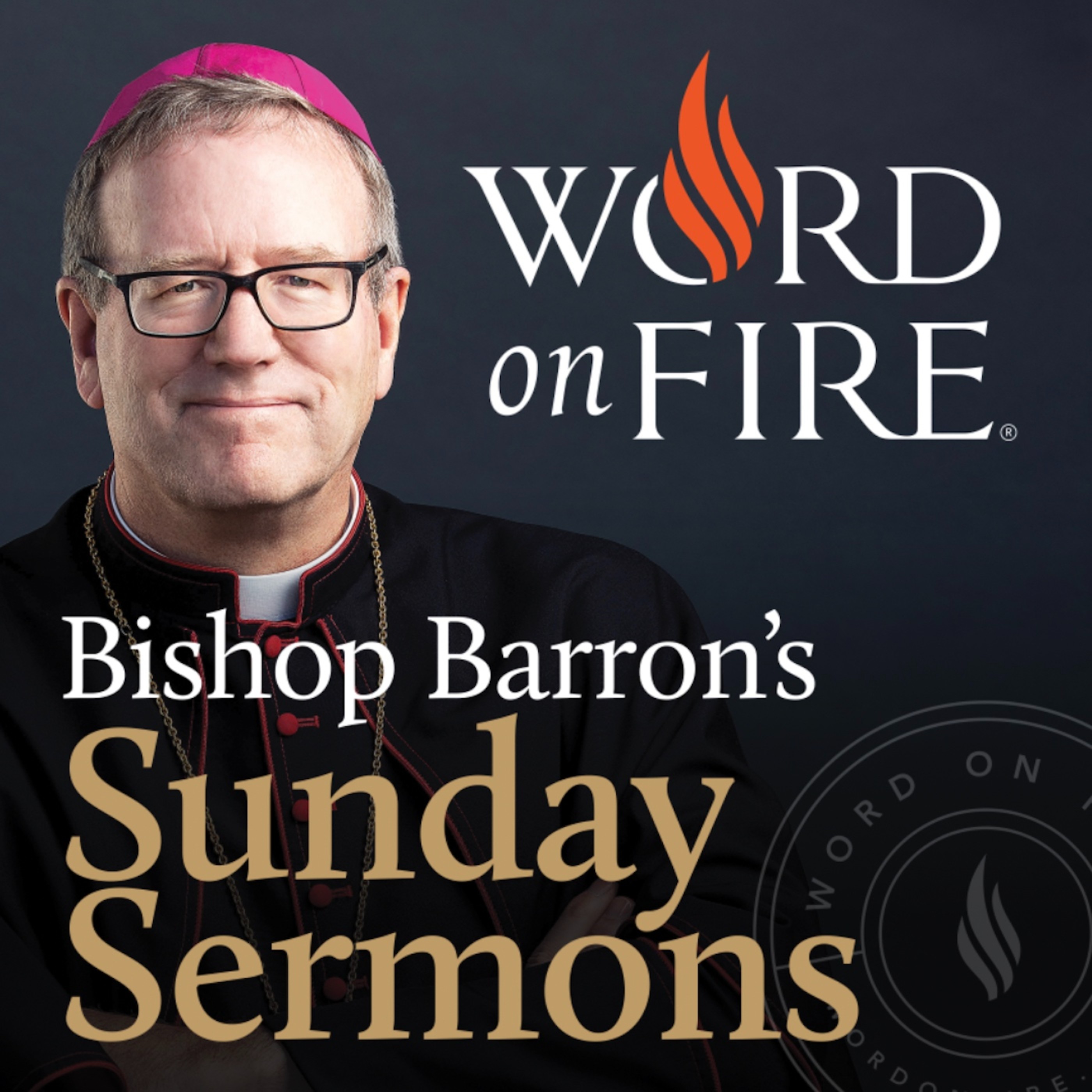

Bishop Barron’s Sunday Sermons - Catholic Preaching and Homilies
Bishop Robert Barron
A weekly homily podcast from Bishop Robert Barron, produced by Word on Fire Catholic Ministries.
Episodes
Mentioned books

Nov 4, 2012 • 15min
Hear, O Israel
Our first reading for Mass this week contains the defining prayer of the Jewish tradition: the “Sh’ma.” In the Gospel, when asked which commandment is the greatest, Jesus, a pious Jew, recites this prayer from the book of Deuteronomy. We Christians too claim—or better, are claimed by—this great prayer. But what does it mean?

Oct 28, 2012 • 15min
Seeing the World Anew
This Sunday's Gospel presents the extraordinary story of Christ's healing Bartimaeus. Bartimaeus is blind. Christ gives him not only the ability to see the world, but to see the world anew through the revelation of his Grace. The Christian way of life is best described as a new way of seeing and it is through this vision, illuminated by the light of Christ, that we are invited to know and see the world as God in Christ intends.

Oct 21, 2012 • 15min
True Ambition
In today's Gospel, the apostles James and John ask Jesus to be given positions of glory in Christ's kingdom. Jesus reminds us that His moment of glory is His death on the Cross, and that if we want to partake in this glory we must commit to a self-sacrificing love, not a self aggrandizing ambition.

Sep 23, 2012 • 15min
Envy and Ambition
The danger of jealousy and envy is that it is as much damaging to others as it is to ourselves. When we are envious, or even ambitious for the purpose of outdoing others, it knocks us off our center and we lose our orientation toward Christ. To his disciples, Jesus presented the model of a child - one who thrives under authority, strives for obedience, and lives in the present. Envy lives in the past and the future, but God's grace is available now.

Sep 2, 2012 • 15min
The Dilemma of the Law
One of the great tensions in the spiritual life is between loving the law and being free of the law. I argue in this homily that learning to swing a golf club is a very good analogy in this regard. Listen and find out why.

Aug 26, 2012 • 15min
Really, Truly, and Substantially Present
The Lord Jesus is not speaking metaphorically about eating his flesh and drinking his blood - he has come to make of his own Body and Blood real food and drink. This revelation was and continues to be a stumbling block for many, but the faithful accept the mystery of the gift of Christ's Real Presence that is given to the Church in the Blessed Sacrament.

Aug 19, 2012 • 14min
The Word of God Made Flesh
Today's Gospel comes again from the sixth chapter of John. Here Christ discusses the necessity and reality of the Eucharist as the Word of God made Flesh.

Aug 12, 2012 • 16min
The Bread of Life, The Body of Christ
Today's readings are from First Kings and the sixth chapter of John's Gospel. Our passage for this weekend discusses the Eucharist as the necessary antidote for spiritual exhaustion. We all need the Body of Christ to nourish our souls and keep us in communion with God.

Jul 15, 2012 • 15min
The Twelve and the New Israel
This week, Mark relays the story of Jesus giving the Twelve Apostles their "marching orders," the instructions on how they would go out and spread the word to the world. Notably, he tells them to go "two by two," laying the foundation for the communal nature of the Church. They are to bring nothing but the simple tools to keep them moving forward, and they are be resolute in fighting the demons of the world-injustice, corruption and dysfunction. These were as much instructions for the Apostles as they are instructions for us to fulfill the mission of the Church today.

Jul 8, 2012 • 15min
A Thorn in the Flesh: Why We Suffer
Saint Paul conveys a unique and powerful perspective on suffering. What he called a "thorn in the flesh," was a suffering so great that it burdened him, prompted him to beg God for relief. But it is in this sort of suffering that we most acutely understand God's love. When all falls away, we have him, we cling to him and we are saved. And when we bear suffering leveled by others and offer it to Christ, we absorb it, we take it out of circulation, and ease the burden for others.


